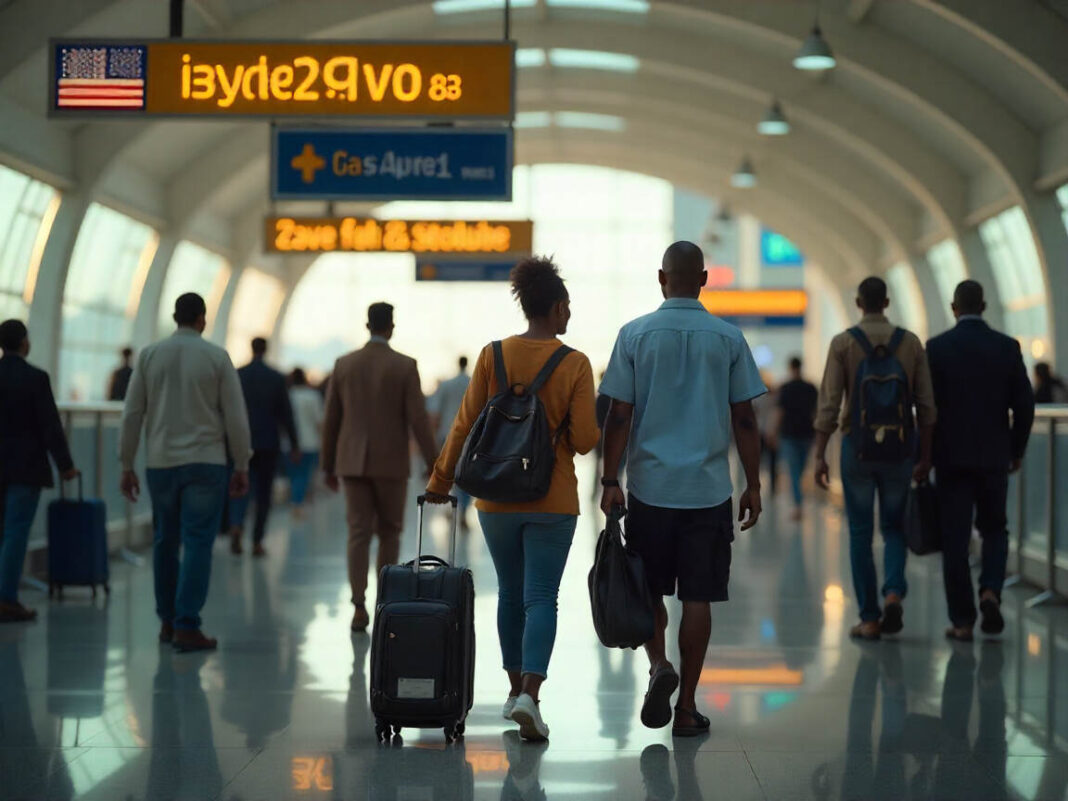US Expands Visa Bond Pilot Program: What Travelers from Malawi, Zambia, Tanzania, and More Need to Know
In a significant development regarding U.S. immigration policy, the U.S. Department of State has rolled out the Visa Bond Pilot Program (VBPP), targeting travelers from select African nations. Officially implemented on August 20, 2025, this initiative is designed to tackle issues related to visa overstays and enhance rigorous immigration security. Initially focused on Malawi and Zambia, the program will gradually include Gambia, Mali, Mauritania, São Tomé and Príncipe, and Tanzania throughout the fall of 2025.
Overview of the Visa Bond Pilot Program
Under the new framework, nationals from the designated countries applying for B-1 or B-2 nonimmigrant visas must deposit a cash bond before entering the United States. The bond, which varies between $5,000 and $15,000, is completely refundable as long as travelers comply with their visa terms and leave the U.S. within the specified timeframe. This initiative comes in response to rising concerns about visa non-compliance, particularly for nationals hailing from countries with a notable history of overstaying their visas.
Countries Affected by the Program
The first of the nations to be impacted by the VBPP are Malawi and Zambia, both of which have recently exhibited heightened overstay rates for U.S. travelers. As of October 11, Gambia joined the program, followed by Mali, Mauritania, São Tomé and Príncipe, and ultimately Tanzania on October 23. This staggered implementation indicates the U.S. Department of State’s intent to closely monitor the program’s impact and expand it as needed based on its success in achieving compliance goals.
Designated U.S. Ports of Entry
Travelers participating in the Visa Bond Pilot Program will be required to enter and exit the U.S. exclusively through specific airports. The designated ports of entry include:
- Boston Logan International Airport (BOS)
- John F. Kennedy International Airport (JFK)
- Washington Dulles International Airport (IAD)
Arrival at any other U.S. airport without the appropriate compliance could lead to fines for the transporting airline. Such restrictions streamline processing and ensure consistent handling of travelers under the bond requirement.
Implications for Business Aviation
While primarily aimed at commercial airlines, the Visa Bond Pilot Program also has significant implications for international business aviation. Operators must remain diligent about these new regulations to comply fully when transporting passengers from the affected countries to the U.S. The National Business Aviation Association (NBAA) has emphasized the importance of understanding these regulations to ensure seamless travel for corporate and private passengers alike.
Laura Everington, NBAA’s director of international operations and regulations, has recommended that business aviation operators confirm with U.S. Customs and Border Protection regarding passenger eligibility for the bond program before any flight departs.
Refund Process for the Visa Bond
A crucial advantage of the Visa Bond Pilot Program is the bond’s refundable nature. Travelers who comply with their visa terms—departing on time—will receive their bond amount back in full. This feature not only ensures the program’s fairness but also alleviates the financial burden on travelers. It is essential to note that while the bond requirement places a temporary cash burden on international travelers, it acts as a deterrent against overstaying, making compliance a priority.
Compliance and Enforcement
The Visa Bond Pilot Program serves as more than just an immigration control measure; it represents a concerted effort to refine screening processes for travelers from specific African nations. The bond aims to mitigate illegal immigration risks while fostering adherence to nonimmigrant visa terms. Over time, the success of this program could lead to further adjustments or broader applications based on the effectiveness of reducing overstay rates and enhancing immigration enforcement.
Travelers from Malawi, Zambia, Gambia, Mali, Mauritania, São Tomé and Príncipe, and Tanzania are now facing a new landscape in their travel plans, with increased scrutiny under the VBPP set to redefine how they engage with U.S. destinations, both for leisure and business.
By establishing this program, the U.S. government illustrates a proactive stance toward improved immigration policy management, balancing security concerns with the need for effective international travel and tourism. As the program evolves, stakeholders across the travel and aviation industries will need to adapt, keeping informed to navigate these regulatory changes effectively.



